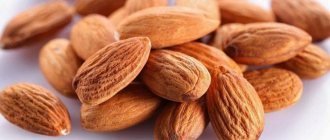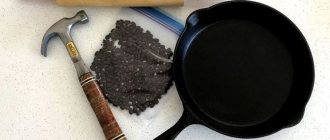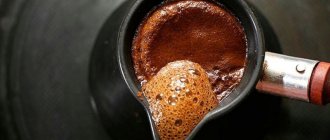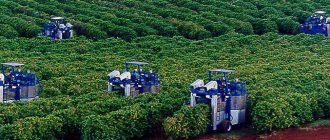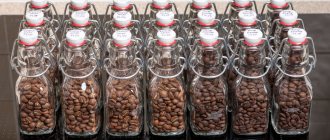For many coffee connoisseurs, this drink has long become a kind of morning ritual, without which it is impossible to start your day. Coffee is prepared in different ways, but more and more people prefer to use special household appliances for this. Today we’ll talk about how and which coffee machine is best to choose for your home. Coffee machines are different from regular coffee makers, so you need to have a good understanding of their features, capabilities and technical specifications.
Which coffee machine to choose
Most coffee machines are expensive devices, so you need to choose the right model very carefully, listening to the recommendations of experts. These tips primarily focus on capabilities, performance, and other criteria:
- Determine exactly for what purpose the coffee machine is purchased. Regular black coffee can be prepared on a simple device with minimal functionality. For other connoisseurs who prefer complex drinks, multifunctional models with a large number of customizable recipes are suitable.
- Daily consumption. If you drink no more than 1-2 cups a day, it is completely pointless to have a powerful device with high performance. You can completely limit yourself to an inexpensive compact model that is easy to clean and does not take up much space in the kitchen.
- The same coffee machine can be produced by different manufacturers. It is advisable to give preference to a proven brand with a long-term positive reputation. Additionally, it is worth studying reviews from real users for each model.
- Energy consumption. When choosing a coffee maker, you must check this parameter with the seller. Of course, with a power of 2 kW and above, the car will be fast and productive. And this is very good, but only if you are willing to pay hefty electricity bills. Most coffee lovers get by just fine with models from 1 to 1.5 kW, without losing the quality of the drink.
- You should carefully check the remaining technical specifications of the device. If they fully satisfy your needs and wishes, then you don’t need to pay much attention to the design. Although, in the most ideal case, the coffee machine should fit organically into the overall kitchen interior.
Types of coffee machines
All coffee making devices operate on the same principle. Hot water at a certain temperature is pressurized through the ground coffee. The end result is a ready-made drink, which just needs to be poured into cups.
The main types of coffee machines intended for home use are relatively compact in size and can easily be placed in the kitchen. However, they differ in noise level, settings, functionality, cost and other parameters.
Table: the best coffee machines for home with a rating of 5/5, according to Yandex.Market
| Model | Price | Characteristics |
| Coffee machine De'Longhi ECAM 21.117 | 24990 rub. |
|
| Coffee machine De'Longhi ECAM 23.120 | 26800 rub. |
|
| Coffee machine Philips EP3558 3100 Series | RUR 30,180 |
|
| Coffee machine Bosch TIS 30129 RW | RUB 31,990 |
|
| Coffee machine De'Longhi ETAM 29.660 SB Autentica | 96289 rub. |
|
Photo gallery: the best coffee machines for home
The Bosch TIS 30129 RW coffee machine is equipped with an automatic self-cleaning system
The De'Longhi ETAM 29.660 SB Autentica coffee machine is equipped with an auto-shut-off function when not in use
The De'Longhi ECAM 21.117 coffee machine is equipped with a built-in coffee grinder
The Philips EP3558 3100 Series coffee machine allows the use of both ground coffee and beans as raw materials
The body of the De'Longhi ECAM 23.120 coffee machine is made of metal
Selection criteria: main parameters
The main indicators given below must be taken into account when choosing the most suitable coffee machine. The presence of these options significantly expands the capabilities of the device.
Availability of built-in coffee grinder and type of millstones
The built-in coffee grinder makes preparing the drink easier and faster. The ability to adjust allows you to adjust the desired degree of grinding and preserve all the beneficial qualities of the beans.
All coffee grinders installed in the machines are equipped with two types of millstones:
- Ceramic. They work very quietly, are not subject to oxidation and heating. During grinding, the beans are not burned, and the taste of the coffee remains unchanged. They are characterized by increased fragility and are easily damaged when foreign bodies get inside.
- Steel. These millstones are very durable and successfully withstand increased loads. At this moment they become very hot and can burn the grains. This can greatly affect the taste of the coffee. During operation, the millstones became very noisy.
Water heater
All coffee machines are equipped with water heaters that are structurally different from each other:
- Boiler. It is a heating element placed inside a metal tank, inside of which water flows. The entire structure is located in the machine body and heats the liquid in large volumes. Maintains high temperature for a long time. The downside is high energy consumption.
- Thermoblock. Takes small portions of cold water from the tank and heats it gradually, as needed, in small volumes. The design is housed in a robust and durable housing. To ensure reliable operation of the heater, it requires frequent maintenance. Devices with thermoblocks are ideal for home use.
What is a built-in coffee machine
For such coffee machines at home, a personal place is allocated in the kitchen in advance, where the unit is installed after purchase. Typically, elements of kitchen units or plasterboard walls and cabinets are used in ordinary rooms.
The device turns out to be strictly stationary, in contrast to simple coffee machines, which can be easily rearranged from place to place. However, built-in devices take up less free space and are harmoniously combined with furniture and decorative elements. As a rule, they are made in a modern, laconic style, which many users really like.
Price
Any coffee machine is an expensive device, but even in this case, all devices are conditionally divided into separate price segments:
- Budget. The minimum price is from 20 thousand rubles.
- The average price category starts from 35 thousand rubles.
- Premium multifunctional devices are the most expensive. Their price starts from 70 thousand rubles.
The cost of any coffee machine depends on its performance, level of automation, availability of useful functions, materials for manufacturing and design.
Specifications
The fault tolerance and cost of a coffee machine directly depend on its technical characteristics:
- power and performance of the model;
- water heater type;
- brewing unit designs;
- presence/absence of a self-cleaning system;
- volume of working containers and display system.
When choosing a device, you should pay attention to models with a metal body, steel parts and a notification system. Modern devices are able to give signals about contamination, filling of containers and technical failures in the system.
Coffee machine performance
The performance of the device affects its cost and scope of application. The power of a coffee machine is expressed in watts and the maximum number of cups of coffee it can make during the day.
- Low-power models (850-1000 W) are suitable for installation in home kitchens and small offices for several people. The devices are characterized by low price and average performance. Carob and grain models give out about 30 mugs per day, and capsule models – 15 mugs.
- Medium power devices (1000-1500 W) are suitable for offices with a consumption rate of 30 to 50 drinks per day.
- High power devices (1500-2500 W) are included in the category of professional equipment. They are installed in catering establishments and places with a large flow of people.
When purchasing a coffee machine for your home, focus on low-power models. This way you will protect yourself from overpayment, and your device will work at full capacity.
Water heater type
The water heating element is responsible for preparing boiling water, steam and milk froth. The speed of brewing the drink and the amount of electricity consumed depend on its type. Modern coffee machines are equipped with one of 2 types of water heaters.
- A boiler is a tank of hot water, the volume of which is designed for 2-3 cups of drink (120-300 ml). Each time, this water heater boils more liquid than is required to prepare one serving of coffee. After brewing, the boiler replenishes the water volume to the maximum level and heats it up again. After several boiling cycles, the taste of the water deteriorates, and scale forms on the walls of the tank. Coffee machines with a boiler water heater are suitable for installation in places with high throughput: cafes, restaurants, offices.
- Thermoblock is a compact device for heating and boiling 1 portion of water. Allows you to save energy and is suitable for installation in residential buildings and small offices.
Coffee machines with an auto-cappuccino maker can have up to 2 built-in boilers: for heating water and preparing milk foam.
Brewing mechanism cleaning system
The brewing mechanism is a functional unit in which ground coffee is extracted with steam or boiling water. Regular contact with coffee oils and hard water leads to the formation of scale and an oily film. As a result of severe clogging, the taste characteristics of the drink deteriorate, and the system itself malfunctions.
To prevent contamination and damage, coffee machine owners are required to clean it regularly. The technology for caring for the device directly depends on the type of infuser:
- Most carob and bean coffee machines are equipped with a removable mechanism. It can be separated from the body, washed under the tap and dried. The hydraulic system pipes cannot be removed and require additional cleaning using special tablets.
- The attached unit is washed automatically. After the machine has prepared a certain amount of coffee, the system makes an audible request for cleaning. To clean the internal parts of the coffee machine, just press the self-cleaning button.
Volume of working containers for coffee and water
This criterion is especially important for large offices with high component consumption. The frequency of filling them will depend on the volume of water and grain tanks. To reduce the time spent servicing the device, some manufacturers are developing models of coffee machines with larger capacities. The maximum tank dimensions for NIVONA coffee machines are: 2.2 liters for water and 250 g. - for coffee.
An additional advantage when choosing a device will be a filling sensor - a system of alarm notifications about the consumption of components. Office employees cannot regularly monitor the amount of coffee and liquid in the compartments, so a hardware message will greatly simplify the maintenance of the device.
Built-in cappuccino maker
Cappuccino machine - a device for frothing chilled milk and whipping milk foam. Used for preparing coffee and dessert drinks based on espresso: latte, cappuccino, mocha, etc.
The cost of a machine equipped with a cappuccino maker increases by 7-15% depending on its type:
- Panarello (steamer) - a steam tube with a plastic or steel nozzle for supplying water steam. To prepare the foam, the operator lowers the steamer into a container (pitcher) with chilled milk and fills it with compressed steam.
- Autocappuccino maker is a compartment of a coffee machine into which chilled milk is poured and hot steam is supplied. The air flow automatically whips up the foam, after which it is fed into a glass of coffee.
Popular manufacturers
Numerous reviews from real users made it possible to create a certain rating, which includes products from the most famous brands. The most popular are:
- Philips Saeco. It produces coffee machines in a huge range, in all price categories. The products are available to the general public.
- Products from Swiss manufacturers have firmly conquered the market of automatic coffee machines.
- De'Longhi. The brand of Italian manufacturers offers products at very affordable prices.
- Krups. The company improves and improves technology, constantly introducing useful additional functions.
Functional characteristics
Modern coffee machines are devices that have many useful functions and modes. For example, automatic rinsing and descaling programs, energy saving mode or the ability to pour 2 cups at the same time.
To reduce energy consumption, manufacturers equip some coffee machines with “off to zero” buttons and ECO modes. With their help you can reduce energy consumption by 30%.
Additional features also affect the cost and performance of the device. When choosing them, buyers are guided by the experience of friends and colleagues, current trends and their own needs.

